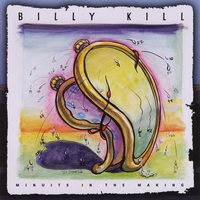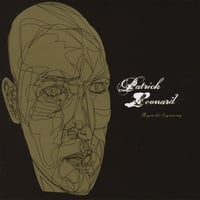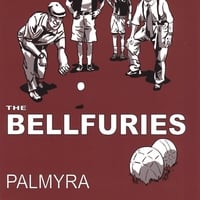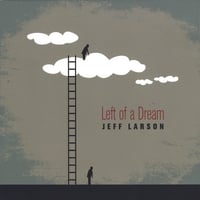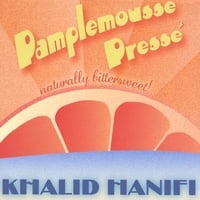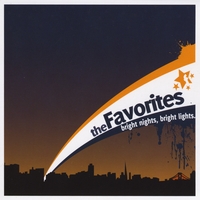Germaine Greer has published an essay,
On Rage, in which she blames white men for the domestic violence in Aboriginal communities.
The essay is yet another example of an ethnic double standard. Greer is a radical liberal in her attitude to white Australian society, but a traditionalist when it comes to Aborigines.
For instance, Greer complains that the effect of white society on Aborigines has been to set men and women against each other and to undermine the traditional male role, thereby marginalising Aboriginal men within the family. This, she argues, has fostered the rage of Aboriginal men which then leads to domestic violence.
Greer quotes an Aboriginal woman who laments that,
Our communities are like a piece of broken string with women on one side and men on the other. (p.56)
Greer also voices disapproval of the effects of government welfare in increasing the autonomy of Aboriginal women to the detriment of the male role within the family:
The fact that government welfare payments are often made to women ... means that more and more women can live independently of men, and are doing so.
... When hunter-gatherer societies begin to break down, it is invariably the gatherers, the women, who combine to hold them together, but in doing so they further marginalise their menfolk, including their own sons. (pp.75,76)
To give you some idea of how Greer treats the Aboriginal family and the male role within it, here is part of her discussion of the issue:
According to anthropologists RM and CH Berndt, traditionally "the most cherished possessions of men were women, children and their sacred heritage," in that order ... The Aboriginal man's wife was not simply a woman he met by chance and fancied, but a kinswoman ... it is the level of avoidance which signifies just how fundamental, how absolutely shattering this loss and humiliation must be. (pp.56,57)
It's curious to find a Western feminist writing in this vein. After all, Greer led a movement to achieve in her own society the very things she is so dismayed occurred in Aboriginal society.
Take the complaint that Aboriginal societies have been left "like a piece of broken string with women on one side and men on the other".
This view of society, in which men and women are set against each other, is built into the feminist theory championed by Greer. In feminist patriarchy theory, men are believed to have organised a power structure in society in order to protect an unearned privilege gained at the expense of oppressed women.
In this world view, the traditional male role within the family is a source of oppression to be overthrown; men are motivated by a desire to assert power over women; women must therefore compete with men for money, power and status.
Millions of Western girls have been brought up to follow this world view, almost like a religion.
The more radical feminists even go so far as to assume that men, by having organised society to oppress women, must be assumed to hate women. Greer herself, in her influential book
The Female Eunuch, goes to great lengths to describe male hatred of women.
Nor has Greer overcome this negative view of men. As I'll describe a little later, Greer is all too ready to vilify white men in her essay on rage - the same essay in which she laments the setting apart of Aboriginal men and women.
It's a similar story when it comes to the issue of autonomy. Greer is terribly concerned that Aboriginal men have been emasculated and marginalised by the decline in their provider role (and in their leadership role); this may have made Aboriginal women more independent, but to the overall loss of cohesiveness of Aboriginal communities.
Yet it is exactly a radical individual autonomy which has been most keenly sought by Western feminists, regardless of the larger consequences to society.
There is another aspect to Greer's ethnic double standard. Greer is a traditionalist in wanting Aborigines to survive as a people, as an ethny. For example, when she discusses the problem of domestic violence in Aboriginal communities, she is concerned not with issues of patriarchy or gender equity, but with the survival of Aborigines as a race:
What is now undeniable is that violence towards women and children across the same spectrum has reached the level of race suicide. (p.91)
When Greer writes about Aborigines, traditional attachments are held to matter. She tells us that Aborigines have lost "what makes any human life worth living". What does she include in this category? Well, she holds that Aborigines have lost "all the important things" including "their families, their social networks, their culture, their religion, their languages and their self-esteem". Furthermore, Aborigines, instead of living in their own tribes, have been forced to amalgamate and live in "polyglot assemblages" (pp.30, 31).
So for Greer it is a terrible fate for Aborigines to live in "polyglot assemblages" as this destroys "what makes any human life worth living". Yet isn't "polyglot assemblage" just another term for "diversity". Is Greer willing to apply her principle to Westerners, just as she does for Aborigines?
I suspect not, as Greer vilifies whites frequently throughout her essay. She claims that Judy Atkinson "puts it as delicately as she can" when she writes of "marauding white males" (p.58); she uses terms like "Australian racists"; she claims that the rape of Aboriginal children by white men "prevailed on a massive scale across the continent, wherever the white man penetrated, in the words of Strehlow's superior, "all the time"" (pp.49-51); she writes too that "From the beginning of white contact in the 1780s ... the white man has considered Aboriginal women his for the taking" (pp. 39-40).
At the end of the essay, the derogatory treatment of whites hits a low point: she uses the term "Whitey" in an openly hostile way:
People now talk of establishing an annual sorry day, as if it would do Whitey good to remind himself how magnanimous he was on 13 February 2008. More useful would be an annual angry day, when Whitey would get reminded of just what he has done for Australia. (pp.97-98)
Little concern here for the "self-esteem" of her own race, despite having previously described it as one of the qualities "that makes any human life worth living".
What is happening here with Germaine Greer? The key thing is that Greer cares about Aboriginal society. She identifies with it and wants it to survive as a distinct entity.
Therefore she does not apply liberal concepts to it. She takes instead a traditionalist view.
It's important to understand this, so I'll rephrase it. Here we have a leading figure of left-liberalism, who has expressed on many occasions her alienation from her own tradition and her concern for Aboriginal society.
It is no coincidence that she pushes liberalism on her own tradition but refrains from doing so when it comes to Aboriginal society. She wishes to conserve Aboriginal society and therefore takes a conservative, rather than a liberal, stance toward it.
So the question then is why she cares for the survival of Aboriginal society but not her own. I can only speculate as to the reasons why.
Perhaps it has to do with a certain understanding of equality widespread on the left. If you assume that our status as humans depends on our autonomy (our power to enact our will), then an imbalance of power means that some people are human at the expense of others. Therefore, you have to either accept that some people aren't fully human (not a palatable option) or else claim that the inequality in the balance of power is the result of an unjust, unnatural, "racist" organisation of society. The group doing the oppression then loses its legitimacy - its moral status.
As whites were the dominant group for a period of time, it's easy for the left to regard them as the illegitimate, oppressive party - and to prefer to identify instead with a non-dominant minority.
Greer has, in fact, throughout her life identified with an ethnic minority. As a young woman she chose to believe that she was Jewish, despite little evidence of Jewish ancestry. More recently she has sought an Aboriginal identity; in one essay (Whitefella Jump Up, 2003) she wrote of Australians declaring themselves Aboriginal "as if by an act of transubstantiation".
In her essay on rage she also emphasises the powerlessness of Aborigines ("utterly powerless"), whereas white society is represented by "racist authorities". It fits the framework of a majority organised illegitimately around the oppression of a powerless minority.
The framework itself deserves to be criticised: it assumes that human equality is contingent and is to be measured by an autonomous power to enact our will; it makes any majority tradition illegitimate; and it falsely assumes that a majority tradition is organised primarily as an act of oppressive dominance over others.
The framework also distorts Greer's understanding of the real situation. She seems to believe that whites are so powerful that their existence can be assumed to be perfectly secure, whereas Aborigines are so powerless they are on the brink.
If anything, the position of Aborigines is advancing, whilst that of whites is declining. Aborigines are becoming more numerous; there is an increasing amount of land set aside permanently for their own use; they are free to celebrate their own existence and there are considerable government funds at their disposable to organise themselves as a community.
In contrast, whites have declining birth rates; are being relegated to minority status throughout the West by immigration; and do not have the same freedom to celebrate their own existence.
That Greer doesn't see this suggests to me that she is still working through the theory I described above. The distance of this theory from reality, and the double standard it encourages in Greer's own writing, are reasons for younger Australians to question the politics of an older generation of left-liberals.

